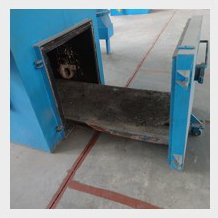China, the world’s most populous country, is facing a major waste management challenge. With urbanization and industrialization on the rise, the country is generating an enormous amount of waste that needs to be dealt with efficiently and responsibly. However, the traditional methods of waste management are proving to be insufficient for the scale of the problem. In response to this, China is turning to technology to revolutionize its waste management practices.
One of the key ways in which China is using technology to tackle its waste management issue is through the implementation of smart waste management systems. These systems make use of sensors, IoT devices, and big data analytics to monitor and manage the collection and disposal of waste. By installing these smart devices in waste bins and containers, the authorities can track the fill levels, optimize collection routes, and ensure timely waste disposal, thus improving the efficiency of the entire waste management process.
Another significant technological innovation in waste management in China is the development of waste-to-energy technologies. With the immense volume of waste being generated, the country is exploring ways to harness the energy potential of this waste. Waste-to-energy plants are being built across the country, using advanced techniques like incineration and gasification to convert waste into electricity and heat. This not only reduces the volume of waste going to landfills but also provides a sustainable source of energy.
Furthermore, China is also investing in the development of advanced recycling technologies. Traditional recycling methods are often labor-intensive and inefficient, but with the help of technology, the process can be streamlined and made more cost-effective. Advanced sorting and processing techniques are being implemented to increase the recovery rates of recyclable materials, reducing the amount of waste going to landfills.
In addition to these technological advancements, China is also leveraging the power of data and analytics to gain insights into its waste management system. By collecting and analyzing data on waste generation, disposal, and recycling, the authorities can identify patterns and trends, which can then be used to make informed decisions and policies for waste management.
Furthermore, the Chinese government is actively encouraging the development and adoption of these technological solutions through policies and incentives. It has set targets for waste reduction and recycling, and is providing support for companies and municipalities to invest in and implement advanced waste management technologies.
The use of technology in waste management in China is not only improving the efficiency and effectiveness of the system but also driving sustainable development. By reducing the amount of waste going to landfills, harnessing the energy potential of waste, and increasing the recovery of recyclable materials, China is moving towards a more circular economy model, where resources are used and reused in a more sustainable and environmentally friendly manner.
In conclusion, China’s revolutionization of waste management through technology is a significant step towards addressing its waste management challenges and promoting a more sustainable and environmentally friendly approach to waste. With the continued development and adoption of advanced technologies, China is poised to make a significant impact on global waste management practices.



